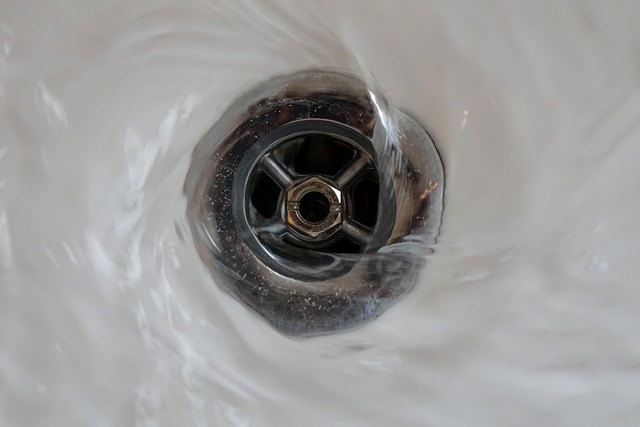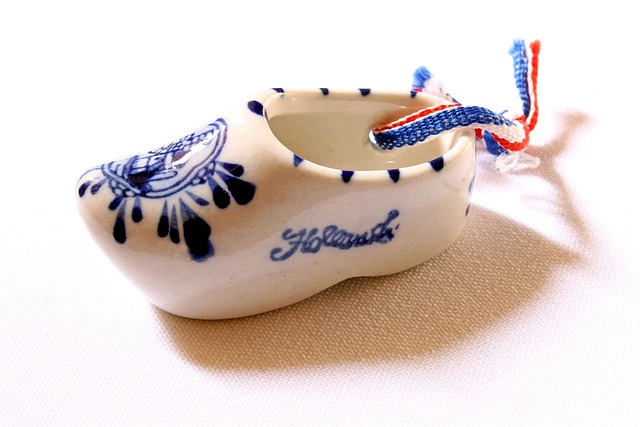Unusual noises (gurgling, hissing) and slow drainage are early signs of clogged drains, indicating debris buildup that restricts water flow. Regularly monitoring these symptoms allows for timely intervention to prevent costly plumbing issues caused by blockages. Overlooking slow drainage can lead to more severe clogs and pipe damage; proactive measures like hot water, vinegar, or drain catchers can help.
Do you ever wonder why your drains seem to act up more often than not? It might be more than just an annoying hiccup—it could be a silent sign of a clogged drain. Most homeowners tend to overlook these subtle clues, but being aware of them can prevent costly plumbing disasters. From unusual noises and slow drainage to persistent bad smells and water backflow, this article unravels the sneaky signs of a blocked drain, empowering you to address potential issues before they become major problems.
- Unusual Noises and Slow Drainage
- – Recognizing the sound of a clogged drain
- – Defining slow drainage as an early warning sign
Unusual Noises and Slow Drainage

Unusual Noises and Slow Drainage are often early warning signs that something is amiss in your plumbing. When water flows through pipes at a normal rate, it creates a consistent, quiet rhythm. If you start to hear gurgling sounds or a sudden change in drainage speed, these could be the first indications of a clog. A slow drain might seem like an inconvenience, but it’s often a subtle signal that debris has built up and is restricting water flow.
Pay attention to any noises or drainage issues, as they are key signs of potential clogs. Ignoring these signs can lead to more severe blockages and costly plumbing problems. Regularly checking for such indicators allows you to address clogs early, preventing them from becoming significant disruptions in your home.
– Recognizing the sound of a clogged drain

Many homeowners often overlook the subtle yet crucial signs of a clogged drain, leading to more significant problems. One of the most recognizable indicators is the sound. When water flows through a pipe, it creates a rhythmic gurgle or a steady hiss—a normal phenomenon. However, if you notice an abrupt change in these sounds, it could be a red flag. Instead of the usual draining noise, you might hear silence or a muffled echo, especially when running water in another part of the house. This sudden quietness is often one of the first signs that a drain is clogging, as water struggles to pass through the pipe due to an obstruction.
Moreover, paying attention to drainage speed is vital. If you find that sinks or tubs drain much slower than usual, it could indicate a growing blockage. The water might also appear to pool in the basin for longer periods before disappearing, providing another obvious clue. These sounds and drainage patterns are often overlooked but can be powerful tools in identifying potential clogs early on, saving homeowners time, money, and preventing more severe plumbing issues.
– Defining slow drainage as an early warning sign

Many homeowners often ignore slow drainage as a mere inconvenience, but it’s actually an early warning sign of a potential clog. This subtle yet significant indicator deserves attention, as it can prevent more severe and costly plumbing issues down the line. When water flows sluggishly down your drains or sinks, it might be trying to tell you that something is amiss.
A slow drain could be caused by various factors, such as built-up hair, grease, or even hard water deposits. Over time, these obstructions can lead to more serious clogs and even pipe damage. Recognizing the signs of a clogged drain early on empowers homeowners to take proactive measures. Regular maintenance, like cleaning drains with hot water and vinegar or using drain catchers, can help prevent clogs from becoming major problems.
Many homeowners often overlook subtle signs of a clogged drain, such as unusual noises and slow drainage, until it becomes a pressing issue. However, being proactive is key to maintaining a healthy plumbing system. By recognizing these early warning signs, you can prevent more serious damage and costly repairs in the long run. Regular maintenance and immediate attention to these sneakily obvious signs will ensure your drains remain unclogged and your home’s plumbing system functions optimally.
